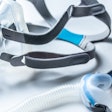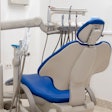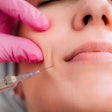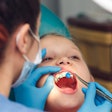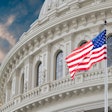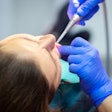
"Sexual misconduct" is taking on a whole new meaning for dental professionals in the state of Pennsylvania.
Under new regulations approved by the Pennsylvania State Board of Dentistry and the Independent Regulatory Review Commission, dating or having a mutually consensual sexual relationship with a patient could put dentists, hygienists, and expanded function dental assistants at risk of disciplinary action.
"The sexual misconduct regulations will prohibit dentists, dental hygienists, and expanded function dental assistants from engaging in any sexual conduct with a current patient," wrote Mariellen Brickley-Raab, R.D.H., chairwoman of the sexual misconduct committee, in a newsletter published by Gov. Edward Rendell's office in fall 2007. "This includes words, gestures, expressions, actions, or any combination thereof which are sexual in nature or which may be construed by a reasonable person as sexual in nature."
Violation of the rule will subject the practitioner to disciplinary action. The regulations do not apply to married dental professionals who treat their spouses or to those cohabitating.
The rule change is the result of state government efforts to encourage all health-related boards to develop sexual misconduct regulations, according to John Reitz, D.D.S., chairman of the state dental board.
"Currently, the Pennsylvania medical board, nursing board, and physical therapist board prohibits a sexual relationship with active patients," he told DrBicuspid.com in an e-mail. "Our rule change makes us consistent with the standards set by our allied health boards. Until now the dental board did not have a definition of sexual misconduct." State boards in California, Iowa, Maine, and Mississippi use a similar definition.
But Thomas Gamba, D.D.S., president of the Pennsylvania Dental Association (PDA), says the new rules are "onerous."
"We don't think the dentist/patient relationship carries the same connotations as that of a gynecologist or psychiatrist," he said. In addition, the regulations do not allow consent as a defense of sexual misconduct.
"We feel that with mutual consent, a dating or romantic relationship should be acceptable," Dr. Gamba said. "We would be very happy if they had taken out the phrase 'consent is not a defense.' "
Dr. Reitz said the key point is "the fiduciary nature of the dentist-patient relationship," as recognized by the ADA.
"The argument of mutual consent does not exist in a fiduciary relationship," he told DrBicuspid.com. "Dentists have access to personal information about their patients, including medical history, financial information, marital status, home address, and phone numbers. This information is necessary to determine an appropriate dental treatment plan, not prescreen potential sexual partners."
In addition, Dr. Reitz believes such rules can help protect the dentist as well as the patient.
"It's not always about exploiting the patient; sometimes it's about the patient exploiting the doctor," he said. He noted that the state medical board's decision was just upheld in Commonwealth Court on similar sexual misconduct regulations after a Pennsylvania doctor who began treating his girlfriend prescribed drugs for her without consulting her other treatment providers, who had stopped prescribing for her because she was engaging in drug-seeking behaviors.
"This case should be the poster child for why it's a bad idea to date one's patients," Dr. Reitz said. "Because of his personal relationship with the patient, he could not be objective and see that his prescribing practices were inappropriate."
Still, Dr. Gamba is concerned that the new regulations could discourage younger dentists from moving to Pennsylvania at a time when the state has a shortage of dental professionals, especially in rural areas.
"PDA believes that the regulations could potentially discriminate against newly graduated dentists, many of whom are unmarried and are more apt to seek personal relationships," he wrote in a letter to Arthur Coccodrilli, commissioner of the state Independent Regulatory Review Commission, in early October. "PDA is concerned that overly burdensome misconduct regulations may make Pennsylvania an unfriendly practice environment for young dentists. This could potentially decrease the number of dentists practicing in the state and impact patients' ability to access care."
Most states prohibit sexual misconduct with patients to some degree, argues Dr. Reitz -- including consensual sexual contact. An article in the September 2004 issue of Journal of the American Dental Association noted that "While you undoubtedly understand that sexual contact between a doctor and a patient that is not consensual or is an otherwise 'illegal' touching of a patient would be of concern to a licensing board, you may not know that licensing boards do not generally 'approve' of consensual sexual contact either" (JADA, September 1, 2004, Vol. 135:9, pp. 1326-1329).
"I believe a practitioner's decision to practice in Pennsylvania is based on factors other than whether the state permits them to sleep with their patients," Dr. Reitz said. "Let's give them more credit than that."
The new rules will take effect in the next few weeks, after they are formally published.









